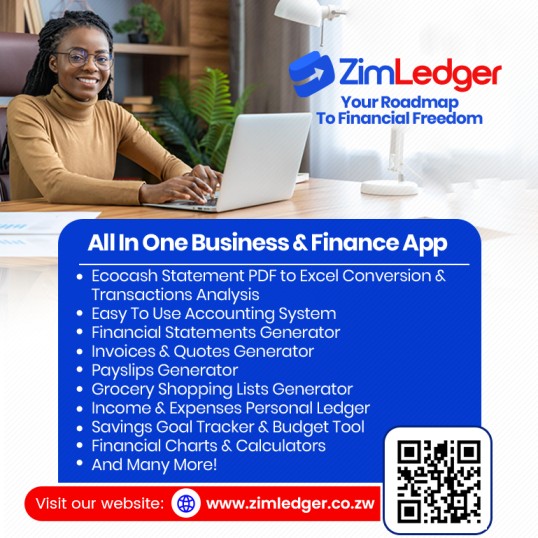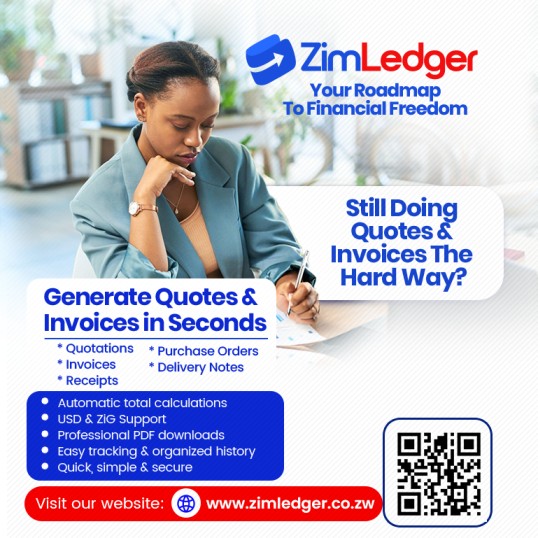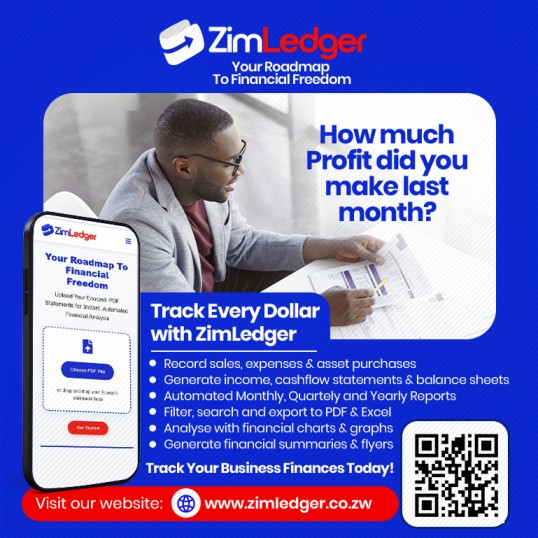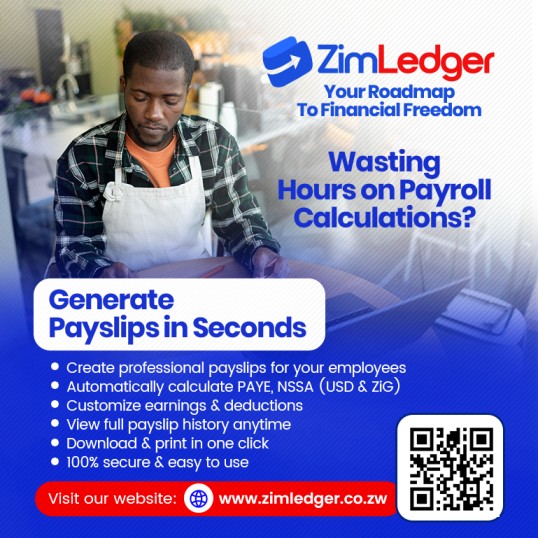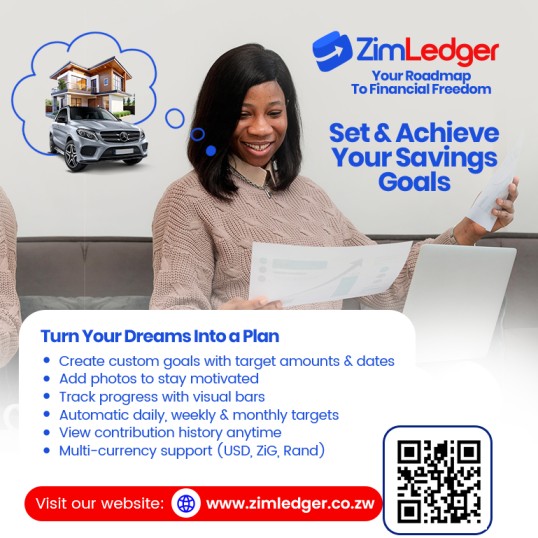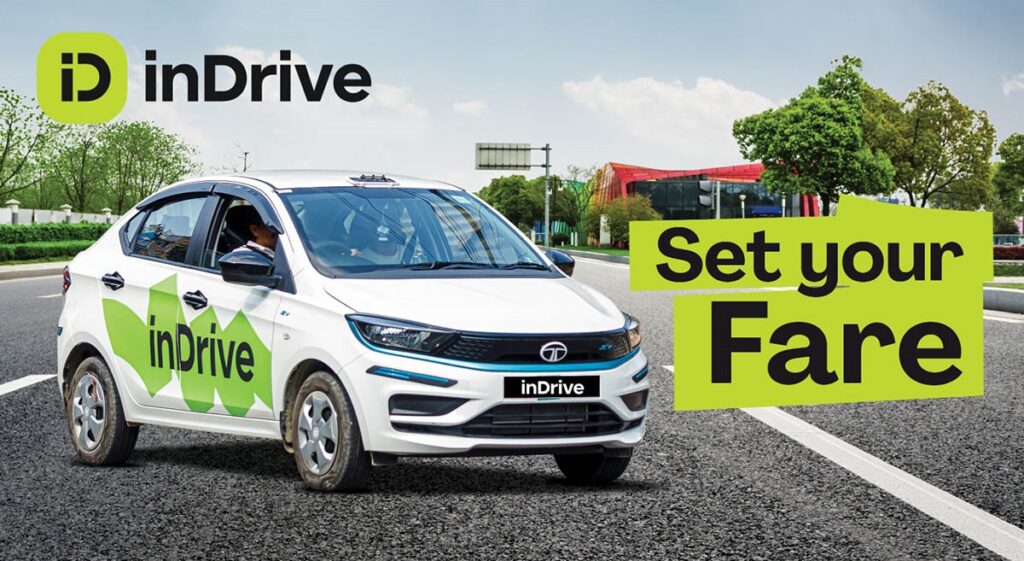Zimbabwe’s car rental industry represents one of the most promising business opportunities in the country today. With a growing tourism sector, expanding business travel, and increasing demand from locals needing temporary transportation, the market conditions are ideal for entrepreneurs ready to enter this lucrative field.
This comprehensive guide will walk you through every aspect of starting and running a successful car rental business in Zimbabwe, from initial investment requirements to operational strategies that can generate monthly profits exceeding US$1,500 from a modest five-vehicle fleet.
Vehicle Categories and Pricing Strategy
Understanding vehicle categories and implementing strategic pricing forms the foundation of profitable car rental operations. Each category serves specific market segments while contributing differently to overall profitability.
Economy Sedans and Fuel Savers
Landing Price Range: US$7,500 – US$11,000
Daily Rental Rate: US$40 (US$35 for weekly rentals)
This category represents the volume segment of the market, featuring fuel-efficient models that attract budget-conscious customers while providing excellent operational economics.
Toyota Models: The popular Passo offers compact efficiency perfect for city driving. The Auris provides slightly more space while maintaining excellent fuel economy. The Axio delivers reliable sedan comfort, while the Vitz remains a customer favorite for its maneuverability and low operating costs. The Aqua hybrid represents the premium end of this category, offering exceptional fuel efficiency and environmental appeal.
Honda Offerings: The versatile Fit provides excellent space utilization and reliability. The Fit GE6 variant offers enhanced features and comfort, while the Fit GP1 provides the latest technology and safety features in the compact segment.
Nissan Selection: The compact March appeals to customers seeking affordable, reliable transportation. The practical ADVan serves customers needing additional cargo space, while the spacious Note offers family-friendly comfort in an efficient package.
These vehicles generate consistent demand from both local customers and international visitors seeking affordable transportation. The combination of low purchase prices, excellent fuel economy, and broad market appeal makes this category the cornerstone of most successful rental fleets.
Mid-Range SUVs
Landing Price Range: US$13,000 – US$19,000
Daily Rental Rate: US$60
Mid-range SUVs serve customers requiring additional space, comfort, and capability while remaining affordable for extended rentals. This category bridges the gap between economy and luxury segments, attracting both business travelers and families.
Featured Models: The stylish Nissan Juke appeals to customers seeking distinctive design and urban capability. The reliable Toyota Vanguard and RAV4 offer proven all-weather performance and excellent resale value. The versatile Nissan X-Trail provides spacious interior accommodation for families and groups. The refined Mazda CX-5 attracts customers who prioritize driving dynamics and premium features.
Mid-range SUVs typically generate higher profit margins than economy vehicles while maintaining broad market appeal. These vehicles perform well with business travelers, small families, and customers planning to explore both urban and rural destinations.
Luxury SUVs
Landing Price Range: US$30,000 – US$45,000
Daily Rental Rates: US$130 – US$180
Premium vehicles targeting high-end customers who prioritize comfort, status, and advanced capability. This category commands the highest daily rates while serving the most profitable customer segments.
Premium Lineup: The Toyota Fortuner D4D commands US$130 per day, offering excellent off-road capability and reliability. The robust Chevrolet Trailblazer provides American engineering and comfort for US$150 per day. The prestigious Toyota Prado, also priced at US$150 per day, represents the gold standard for luxury SUV rentals. At the top tier, the Toyota Fortuner GD6 commands US$180 per day, featuring the latest technology and superior comfort amenities.
Luxury SUVs primarily serve diplomatic missions, high-end business travelers, and affluent tourists. While purchase prices are substantial, these vehicles generate the highest profit margins and help establish premium brand positioning.
Double Cab Pickups
Landing Price Range: US$25,000 – US$35,000
Daily Rental Rates: US$100 – US$140
These versatile workhorses remain popular with businesses and individuals needing cargo capacity combined with passenger accommodation. Variable pricing reflects different trim levels and equipment packages.
Available Models: The dependable Isuzu D-Max offers exceptional durability and lower operating costs. The market-leading Toyota Hilux provides proven reliability and excellent resale value. The capable Ford Ranger features advanced technology and comfort features. The robust Mazda BT-50 delivers excellent value and competitive operating economics.
Double cab pickups serve diverse customer segments including construction companies, agricultural operations, mining contractors, and adventure tourists exploring rural destinations. The combination of passenger comfort and cargo capability makes these vehicles highly versatile and profitable.
Minibuses
Landing Price Range: US$16,000 – US$20,000
Daily Rental Rates: US$100 – US$150
Group transportation solutions serve everything from family trips to corporate shuttles, providing essential services for customers needing multi-passenger capability.
Fleet Options: The Toyota HiAce 10-seater, commonly called “Baby Quantum,” rents for US$100 per day and suits smaller groups or extended families. The larger Toyota HiAce 15-seater commands US$150 per day, ideal for tour groups, corporate events, and large family gatherings.
Both variants offer exceptional reliability and passenger comfort for multi-passenger transportation needs. Minibuses often generate additional revenue through driver services and specialized tour packages.
Fleet Sourcing and Procurement
Successful car rental operations depend on acquiring reliable vehicles at competitive prices. Most Zimbabwean operators utilize ex-Japanese vehicles due to their excellent reliability, fuel efficiency, and favorable purchase prices.
Direct Import from Japan
Purchasing directly from Japan offers the widest vehicle selection and potentially the best prices, though it requires more complex logistics and longer lead times.
Process Overview: Utilize platforms like BeForward Japan to identify suitable vehicles. Engage a reliable clearance agent to handle import documentation, shipping arrangements, and customs clearance. Vehicles typically arrive via Dar es Salaam port within 2-3 months of purchase.
Advantages: Access to the complete Japanese used car market, potentially lower purchase prices, ability to specify exact vehicle requirements, and direct communication with Japanese dealers.
Considerations: Longer acquisition timeframes, currency exchange risks, potential shipping delays, and the need for reliable local clearance agents.
South African Border Purchases
Buying from established dealers in the Beitbridge/Musina area provides faster vehicle acquisition with the ability to physically inspect vehicles before purchase.
Process Overview: These dealers import ex-Japanese vehicles in bulk to South Africa, then sell to buyers throughout the region. The clearance process typically takes three days, allowing rapid fleet expansion.
Advantages: Quick acquisition timeframes, ability to physically inspect vehicles, established dealer relationships, and simplified import procedures.
Considerations: Potentially higher purchase prices compared to direct imports, limited vehicle selection, and dependency on dealer inventory.
Vehicle Selection Criteria
Regardless of sourcing method, successful operators apply consistent selection criteria to ensure fleet quality and operational efficiency.
Mechanical Condition: Prioritize vehicles with complete service histories, reasonable mileage, and evidence of proper maintenance. Avoid vehicles with accident history or significant mechanical issues.
Market Demand: Select vehicles with proven rental demand in your target market segments. Consider fuel efficiency, parts availability, and local mechanic familiarity.
Resale Value: Choose vehicles that maintain strong resale values, providing asset protection and eventual upgrade opportunities.
Startup Requirements and Initial Investment
Understanding the complete financial requirements for starting a car rental business enables proper planning and realistic expectations. This analysis assumes a five-sedan fleet with an average purchase price of US$8,000 per vehicle.
Initial Fleet Investment
Fleet Acquisition: 5 sedans × US$8,000 = US$40,000
This represents the largest single investment component and forms the foundation of your rental operations. Vehicle selection should balance purchase price, operating costs, market demand, and expected resale value.
Regulatory Registration and Licensing
Zimbabwe Tourism Authority Registration: The ZTA registration process ensures operators meet industry standards and maintain professional service levels.
Required Documentation:
- Current bank statement or bank letter confirming financial standing
- Public liability insurance coverage
- Professional brochures and promotional materials
- Certificate of incorporation (CR14)
- Certified balance sheets or capital value statements
- Vehicle registration books for all fleet vehicles
- Certificates of fitness proving roadworthiness
- Fire extinguishers and first aid kits for each vehicle
- Tour guide license for guided service operations
- Valid office lease agreement
- Provisions for disabled accessibility where applicable
Registration Costs: Approximately US$500 for initial Tourism Authority registration and Ministry of Transport approvals.
Vehicle Preparation and Safety Equipment
GPS Tracking Systems: US$50 per vehicle × 5 vehicles = US$250
Modern tracking systems provide security, route monitoring, and operational efficiency. These systems enable remote vehicle monitoring and theft recovery capabilities.
Safety Equipment: US$30 per vehicle × 5 vehicles = US$150
Each vehicle requires fire extinguishers and first aid kits as mandated by tourism regulations. These items must be regularly inspected and replaced as needed.
Ongoing Licensing and Permit Costs
ZINARA Vehicle Licenses: US$40 per vehicle per 4-month term × 5 vehicles = US$200 per term
These licenses must be renewed regularly and represent ongoing operational expenses.
ZBC Radio Licenses: US$30 per vehicle per 4-month term × 5 vehicles = US$150 per term
Radio licenses enable emergency communication and operational coordination.
Office Setup and Infrastructure
Office and Garage Rental: US$500 per month (ongoing expense)
Secure premises outside the central business district provide cost-effective operations while maintaining professional standards. Facilities should include office space, secure parking, and basic maintenance capabilities.
Office Equipment and Furniture: US$1,500
Essential equipment includes desks, chairs, filing cabinets, computers, printers, and basic office supplies. Professional appearance helps establish credibility with customers and regulatory authorities.
Initial Marketing Materials: US$500
Professional brochures, business cards, signage, and promotional materials establish market presence and support customer acquisition efforts.
Working Capital Requirements
Initial Operating Capital: US$5,000
Working capital covers initial operational expenses including insurance, fuel, maintenance supplies, and unexpected costs during the startup period.
Total Initial Investment Summary
Complete Startup Investment: Approximately US$50,000
This investment provides a solid foundation for profitable operations while meeting all regulatory requirements and industry standards.
Licensing and Legal Compliance
Operating a legal, compliant car rental business in Zimbabwe requires proper licensing, registration, and ongoing regulatory compliance. Understanding these requirements prevents operational disruptions and builds customer confidence.
Zimbabwe Tourism Authority Registration
The ZTA serves as the primary regulator for car rental operations serving tourists and visitors. Registration demonstrates commitment to professional standards and industry best practices.
Application Process: Submit complete documentation package including financial statements, insurance coverage, vehicle registration documents, and operational procedures. The review process typically takes 4-6 weeks.
Ongoing Requirements: Maintain current insurance coverage, submit annual reports, and comply with vehicle safety standards. Regular inspections ensure continued compliance.
Ministry of Transport Licensing
Vehicle operators must comply with transport regulations and maintain appropriate permits for commercial vehicle operations.
Commercial Vehicle Registration: All rental vehicles require commercial registration and appropriate permit endorsements. Regular renewals ensure legal operation.
Driver Requirements: Ensure all drivers (if providing driver services) maintain valid commercial licenses and meet professional standards.
ZINARA Licensing
The Zimbabwe National Road Administration requires current vehicle licenses for all commercial vehicles.
License Categories: Different vehicle types require specific license categories. Ensure proper classification for all fleet vehicles.
Renewal Schedules: Maintain current renewal schedules to avoid operational disruptions and potential penalties.
Zimbabwe Broadcasting Corporation Radio Licenses
Commercial vehicles operating in Zimbabwe require radio communication licenses for emergency and operational communications.
Application Process: Submit applications for each vehicle with appropriate technical specifications and usage requirements.
Compliance Requirements: Maintain proper radio equipment and comply with broadcasting regulations.
Insurance and Liability Coverage
Comprehensive insurance coverage protects business assets while meeting regulatory requirements and customer expectations.
Public Liability Insurance: Minimum coverage levels as specified by tourism and transport authorities.
Vehicle Insurance: Comprehensive coverage for all fleet vehicles including theft, accident, and third-party liability protection.
Professional Indemnity: Additional coverage for business operations and customer service activities.
Tax Registration and Compliance
Proper tax registration ensures legal operation and enables access to formal banking services and business relationships.
VAT Registration: Register for Value Added Tax if annual turnover exceeds prescribed thresholds.
Pay As You Earn (PAYE): Comply with employee tax obligations if employing staff members.
Corporate Income Tax: Maintain proper accounting records and file annual tax returns as required.
Monthly Operational Costs
Understanding and managing monthly operational costs determines the difference between profitable and unprofitable operations. Successful operators maintain detailed cost tracking and implement efficient operational procedures.
Fixed Monthly Costs
These costs remain constant regardless of fleet utilization levels, representing the basic operational foundation.
Administrative Staff: US$400 per month
A dedicated administrator manages bookings, customer service, vehicle maintenance coordination, and basic accounting functions. This position proves essential for professional operations and customer satisfaction.
Office and Garage Rental: US$500 per month
Secure premises outside the CBD provide cost-effective operations while maintaining professional standards. Facilities should include customer reception area, secure vehicle parking, and basic maintenance space.
Marketing and Advertising: US$50 per month
Traditional marketing including print materials, local advertising, and promotional activities. This baseline marketing maintains market presence and supports customer acquisition.
Facebook Sponsored Advertising: US$300 per month (US$10 per day)
Digital marketing through social media platforms reaches target customers efficiently and cost-effectively. Consistent online presence generates leads and builds brand recognition.
General Operating Expenses: US$150 per month
Miscellaneous expenses including stationery, airtime, internet connectivity, utilities, and other operational necessities.
Total Monthly Fixed Costs: US$1,400
Variable Costs per Vehicle
These costs directly correlate with fleet size and utilization levels, scaling proportionally with business growth.
Comprehensive Vehicle Insurance: US$40 per vehicle per month
Calculated as US$160 per 4-month term divided by 4 months, based on 2% of US$8,000 vehicle value. Comprehensive coverage protects against theft, accidents, and third-party liability.
Maintenance and Repairs: US$100 per vehicle per month
Regular maintenance, repairs, and servicing ensure vehicle reliability and safety. Preventive maintenance reduces emergency repair costs while maintaining customer satisfaction.
Government Licenses and Permits: US$20 per vehicle per month
Combined costs for Ministry of Transport and ZTA permits allocated monthly. These permits must remain current for legal operation.
ZBC Radio Licenses: US$7.50 per vehicle per month
US$30 per 4-month term divided by 4 months. Radio communication capabilities support operational efficiency and emergency response.
Total Variable Costs per Vehicle: US$167.50 per month
Total Variable Costs (5 vehicles): US$830 per month
Total Monthly Operational Costs
Combined Monthly Expenses: US$1,400 (fixed) + US$830 (variable) = US$2,230
This cost structure provides the foundation for pricing decisions and profitability analysis. Successful operators continuously monitor these costs and identify optimization opportunities.
Revenue Projections and Profitability Analysis
Realistic revenue projections based on industry standards and market conditions enable accurate business planning and investment decisions.
Fleet Utilization Assumptions
Industry Standard Utilization: 75%
Well-managed car rental operations typically achieve 75% fleet utilization rates. This represents 22.5 rental days per vehicle per month, accounting for maintenance periods, seasonal variations, and market fluctuations.
Revenue Calculation Model
Daily Utilization per Vehicle: 75% × 30 days = 22.5 rental days per month
Average Daily Rate (sedans): US$35 (assuming weekly discount rates)
Monthly Revenue per Vehicle: 22.5 days × US$35 = US$788
Total Fleet Revenue Projections
Monthly Revenue per Vehicle: US$788
Total Monthly Revenue (5 vehicles): US$788 × 5 = US$3,940
Profit Analysis per Vehicle
Monthly Revenue per Vehicle: US$788
Monthly Variable Costs per Vehicle: US$166
Monthly Gross Profit per Vehicle: US$788 – US$166 = US$622
Complete Profitability Analysis
Total Monthly Revenue: US$3,940
Total Monthly Operational Costs: US$2,237.50
Net Monthly Profit: US$3,940 – US$2,230 = US$1,710
Annual Financial Projections
Annual Revenue: US$3,940 × 12 = US$47,280
Annual Operational Costs: US$2,230 × 12 = US$26,760
Net Annual Profit: US$47,280 – US$26,760 = US$20,520
Return on Investment Analysis
Initial Investment: US$50,000
Annual Net Profit: US$20,520
Annual ROI: 41.04%
This return on investment compares favorably with most business opportunities while providing monthly cash flow and asset appreciation potential.
Car Rental Business Plan
A comprehensive car rental business plan serves as the foundation for successful operations and investor confidence in Zimbabwe’s growing transportation market. The plan should encompass detailed market analysis, competitive positioning, operational procedures, financial projections, and risk management strategies tailored to the unique opportunities and challenges within Zimbabwe’s automotive rental sector. This document becomes essential when seeking bank financing, attracting potential partners, or guiding strategic decision-making throughout the business lifecycle.
The business plan must demonstrate thorough understanding of regulatory requirements, customer segments, seasonal demand patterns, and operational complexities that characterize Zimbabwe’s car rental industry. Financial projections should reflect realistic utilization rates, maintenance costs, insurance requirements, and revenue streams while accounting for economic volatility and currency considerations. A well-structured business plan not only attracts financing and partnerships but also serves as a operational roadmap ensuring systematic growth and sustainable profitability in this capital-intensive industry.
Market Overview and Opportunity
The Zimbabwean car rental market is experiencing significant growth driven by several key factors. Tourism to major attractions like Victoria Falls, Great Zimbabwe, and Hwange National Park continues to expand, while business travel has increased substantially as the economy stabilizes and international investment grows.
Additionally, the local market presents substantial opportunities. Many Zimbabweans require temporary transportation for special events, business trips, or when their personal vehicles are being serviced. The combination of these market segments creates year-round demand that supports sustainable business operations.
The industry benefits from relatively low competition compared to more saturated markets, creating opportunities for well-managed operations to establish strong market positions. With proper planning and execution, car rental businesses can achieve both strong monthly cash flows and long-term asset appreciation.
Understanding Your Customer Base
Success in the car rental industry depends on understanding and serving diverse customer segments, each with unique needs and requirements.
International and Regional Tourists
Tourism represents the most visible segment of the car rental market. International visitors exploring Zimbabwe’s world-renowned attractions typically require reliable transportation for 3-14 day periods. These customers value reliability and convenience over price, making them ideal clients for mid-range to premium vehicles.
Tourist bookings often occur during peak seasons (May through October), providing excellent utilization rates during these periods. Tour operators, hotels, and travel agencies serve as important referral sources for this segment.
Business Travelers and Corporate Clients
Corporate executives, consultants, and professionals visiting for meetings, conferences, or project work represent a high-value customer segment. Business travelers prioritize reliability and professional service, often preferring mid-range to luxury vehicles regardless of price sensitivity.
This segment frequently requires airport transfers, flexible pickup and drop-off arrangements, and professional invoicing procedures. Building relationships with corporate travel managers and executive assistants can generate recurring business.
Non-Governmental Organizations and Development Partners
Zimbabwe hosts numerous international NGOs, UN agencies, donor organizations, and development partners who require reliable transportation for field work and project implementation. This segment represents substantial opportunities for SUVs and 4×4 vehicles due to rural operations and challenging road conditions.
NGOs often establish monthly or quarterly rental agreements, providing stable revenue streams that help balance seasonal fluctuations from other market segments. These organizations typically maintain higher service standards and prefer established operators with proven reliability records.
Government and Parastatal Organizations
Government ministries, departments, and state-owned enterprises frequently require rental vehicles for official functions, conferences, and project work. This segment typically demands higher-end vehicles with driver services, commanding premium rates for luxury SUVs and minibuses.
Government contracts often involve formal tender processes and require proper business registration and tax compliance. However, successful government relationships can provide substantial, consistent revenue streams.
Local Corporate and Industrial Clients
Local and international businesses operating in Zimbabwe need rental vehicles for employee transportation, client services, and temporary fleet supplementation. Mining companies, agricultural enterprises, manufacturing firms, and service providers represent regular customers, particularly for double-cab pickups and SUVs suited to industrial operations.
These relationships often develop into long-term partnerships, with businesses relying on rental services during peak operational periods or equipment maintenance cycles.
Individual and Family Customers
Zimbabwean residents require rental vehicles for weddings, family events, business trips, or when personal vehicles require servicing. This market segment typically seeks fuel-efficient sedans and remains price-sensitive, but provides consistent local demand throughout the year.
Individual customers often become repeat clients, particularly for special occasions and family events. Word-of-mouth referrals from satisfied individual customers can generate significant new business.
Event and Conference Organizers
Hotels, event management companies, and conference organizers require coordinated transportation solutions for delegates, guests, and VIP attendees. This segment often needs minibuses, luxury SUVs, and professional driver services during specific event periods.
Event organizers typically plan transportation well in advance, providing opportunities for guaranteed bookings and premium pricing for specialized services.
Diplomatic Community
Embassies, high commissions, and diplomatic missions require secure, reliable transportation for staff and visiting delegations. This premium segment values discretion, reliability, and high-end vehicles, often establishing long-term service agreements.
Diplomatic clients typically maintain the highest service standards and provide excellent references for attracting other premium customers.
Revenue Enhancement Opportunities
Successful car rental operators implement multiple revenue streams beyond basic daily rental rates, maximizing profitability and customer service levels.
Additional Service Charges
Delivery and Collection Fees: US$10 per trip outside CBD
Customers appreciate convenient vehicle delivery and collection services. These services generate additional revenue while providing competitive advantages over operators requiring customer pickup.
Professional Driver Services: US$20 per day plus accommodation
Many customers, particularly minibus renters and luxury vehicle clients, prefer professional driver services. This service generates additional daily revenue while reducing customer driving concerns.
Vehicle Cleaning Fees: US$10 for dirty returns
Maintaining fleet cleanliness standards requires consistent enforcement. Cleaning fees encourage proper vehicle care while covering additional cleaning costs.
Excess Mileage Charges: US$0.30-1.00 per kilometer beyond 200km daily limit
Daily mileage limits protect vehicles from excessive wear while generating additional revenue from high-mileage users. Rates vary based on vehicle engine size and category.
Road Condition Surcharges: US$10-20 per day for dust roads
Non-4×4 vehicles used on challenging road conditions incur additional maintenance costs. Surcharges compensate for increased wear and potential damage.
Service Package Opportunities
Weekly and Monthly Rental Discounts
Extended rental periods improve utilization rates and reduce administrative costs. Offering competitive weekly and monthly rates encourages longer bookings while maintaining profitability.
Corporate Service Packages
Businesses requiring regular rental services appreciate simplified billing, guaranteed vehicle availability, and preferential rates. Corporate packages generate stable revenue streams while reducing marketing costs.
Tourism Service Packages
Comprehensive packages including vehicle rental, fuel allowances, and driver services appeal to tourists seeking convenient, all-inclusive transportation solutions.
Airport Transfer Premium Services
Professional airport transfer services command premium rates while serving high-value customers. These services often generate additional referrals and repeat business.
Seasonal Pricing Strategies
Peak Season Premiums
During high-demand periods, implement modest rate increases to maximize revenue from limited fleet capacity.
Off-Season Promotions
Competitive promotional rates during slower periods maintain utilization levels and generate cash flow during challenging market conditions.
Event-Based Pricing
Special events, conferences, and festivals create temporary high-demand periods. Strategic pricing during these events maximizes revenue opportunities.
Terms and Conditions Framework
Comprehensive terms and conditions protect business interests while establishing clear customer expectations. Well-defined policies prevent disputes and ensure smooth operations.
Fuel Policy and Procedures
Full-to-Full Fuel Policy: All vehicles are provided with full fuel tanks and must be returned with full tanks. This policy ensures consistent service standards and prevents fuel-related disputes.
Airport Drop-off Arrangements: Customers unable to refuel before airport returns may leave money equivalent to a full tank, with unused portions refunded. This flexibility accommodates travel schedules while maintaining fuel policy compliance.
Fuel Receipt Requirements: Customers must provide fuel receipts when requested to verify proper fueling procedures and resolve any fuel-related questions.
Security Deposit and Documentation
Deposit Requirements: Refundable deposits of US$150-200 are required along with valid driving license copies. Deposit amounts may vary based on vehicle category, with luxury vehicles requiring higher deposits.
Documentation Standards: All customers must provide valid driving licenses, identification documents, and emergency contact information. International visitors must present appropriate international driving permits.
Deposit Refund Procedures: Deposits are refunded within 24-48 hours after vehicle return, pending inspection for damages, traffic fines, or contract violations.
Mileage Policy and Charges
Daily Mileage Allowance: Each rental includes 200 kilometers of free mileage per day. This allowance accommodates normal usage while controlling vehicle wear.
Excess Mileage Rates: Beyond the daily allowance, charges range from US$0.30 to US$1.00 per kilometer based on vehicle engine size and category.
Long-Distance Travel: For trips to major destinations, mileage charges can be prepaid at booking to provide cost certainty and encourage longer rentals.
Vehicle Condition and Cleanliness Standards
Return Condition Requirements: Vehicles must be returned in clean condition, both interior and exterior. Professional appearance standards maintain fleet quality and reduce turnaround times.
Cleaning Fee Structure: Excessively dirty returns incur US$10 cleaning fees. This policy encourages proper vehicle care while covering additional cleaning costs.
Damage Assessment Procedures: Detailed vehicle inspections at pickup and return document existing conditions and identify new damage. Digital photography provides clear documentation for insurance and billing purposes.
Road Condition and Usage Policies
Road Surface Restrictions: Non-4×4 vehicles used on dust roads incur additional daily charges of US$10-20. This policy compensates for increased maintenance costs and potential damage.
Authorized Route Requirements: Customers must adhere to approved routes and destinations. Unauthorized deviations may result in additional charges or deposit forfeitures.
Off-Road Usage Prohibitions: Standard rental vehicles are not authorized for off-road use. Violations result in immediate contract termination and full liability for damages.
Delivery and Collection Services
Free Delivery Areas: Complimentary delivery within Harare CBD when bookings are made in advance. This service provides convenience while encouraging advance reservations.
Extended Delivery Areas: Local deliveries outside CBD cost US$10 per trip. Customers may also collect vehicles directly from rental locations.
Airport Services: Drop-off at customer locations or airport on the final day is included in rental rates, providing convenience and encouraging customer satisfaction.
Driver Services and Requirements
Professional Driver Availability: Qualified drivers are available for minibus rentals starting from US$20 per day, excluding accommodation costs.
Driver Qualifications: All drivers maintain valid commercial licenses and demonstrate experience with specific vehicle categories.
Driver Accommodation: Customer responsibility for driver accommodation during multi-day rentals. Clear policies prevent misunderstandings and additional costs.
Extended Rental Incentives
Weekly Discount Structure: Seven-day or longer bookings receive reduced daily rates. For sedans, rates decrease from US$40 to US$35 per day.
Monthly Rental Programs: Extended monthly rentals receive significant discounts while improving utilization rates and reducing administrative costs.
Corporate Account Benefits: Regular business customers receive preferential rates, priority booking, and simplified billing procedures.
Accident and Damage Procedures
Immediate Reporting Requirements: All accidents must be reported immediately to rental company offices and police authorities. Failure to report results in automatic deposit forfeiture plus additional charges.
Insurance Claim Procedures: Proper accident reporting ensures insurance claim processing and legal compliance. Customers must cooperate fully with insurance investigations.
Damage Assessment: Professional damage assessments determine repair costs and customer liability. Independent assessments ensure fair and accurate damage evaluations.
Vehicle Security and Tracking
GPS Tracking Systems: All rental vehicles include GPS tracking for security and route monitoring. These systems enhance vehicle security while enabling efficient fleet management.
Security Monitoring: Authorized personnel monitor vehicle locations and routes. Unusual activity triggers immediate investigation and customer contact.
Emergency Response: Tracking systems enable rapid response to emergencies, breakdowns, and security incidents, ensuring customer safety and vehicle protection.
Contract Modification and Cancellation
Booking Modification Policies: Changes to rental periods, vehicle categories, or pickup locations may incur administrative fees. Advance notice enables better accommodation of changes.
Cancellation Terms: Cancellation policies vary based on advance notice provided. Early cancellations may incur fees, while last-minute cancellations forfeit deposits.
Force Majeure Provisions: Extraordinary circumstances beyond customer or operator control may require contract modifications without penalty to either party.
Risk Management and Challenges
Understanding and preparing for operational challenges enables sustainable business growth and protects against common industry risks.
Seasonal Demand Fluctuations
Challenge Overview: Tourism peaks and valleys significantly affect utilization rates, particularly for operators heavily dependent on tourist customers.
Mitigation Strategies: Develop diverse customer bases including corporate clients, government contracts, and local individual customers. These segments provide demand stability during tourism low seasons.
Seasonal Planning: Build cash reserves during peak seasons to sustain operations during slower periods. Consider temporary fleet reductions or alternative uses for excess vehicles during low-demand periods.
Vehicle Maintenance and Breakdown Management
Challenge Overview: Regular maintenance is essential but expensive, while unexpected breakdowns can disrupt customer service and generate significant repair costs.
Preventive Maintenance: Implement rigorous maintenance schedules based on mileage and time intervals. Preventive maintenance reduces emergency repairs while maintaining customer satisfaction.
Mechanic Relationships: Establish relationships with reliable, experienced mechanics who understand rental vehicle requirements. Negotiate favorable rates for regular servicing and emergency repairs.
Backup Vehicle Strategy: Maintain backup vehicles or arrangements with other operators to cover breakdown situations. Customer service continuity prevents reputation damage and revenue loss.
Customer Damage and Theft Risks
Challenge Overview: Customer damage and vehicle theft represent significant financial risks that comprehensive insurance may not fully cover.
Prevention Measures: Implement strict vehicle inspection procedures with detailed photographic documentation. GPS tracking systems enable theft recovery while monitoring vehicle usage.
Insurance Management: Maintain comprehensive insurance coverage while understanding policy limitations and exclusions. Consider additional coverage for specific risks based on operational experience.
Customer Screening: Develop customer screening procedures including driving license verification, reference checks, and deposit requirements appropriate to vehicle values.
Competitive Market Pressures
Challenge Overview: Established operators and new market entrants can pressure pricing and market share, affecting profitability.
Competitive Advantages: Focus on service quality, reliability, and niche market segments that larger operators may overlook. Personal service and flexibility can offset pricing disadvantages.
Value Proposition: Develop clear value propositions beyond price competition. Convenience, reliability, and professional service often outweigh modest price differences.
Market Positioning: Establish clear market positioning and brand identity that differentiates your operation from competitors.
Economic Volatility and Currency Risks
Challenge Overview: Currency fluctuations and economic downturns affect customer spending patterns and operational costs.
Flexible Pricing: Maintain pricing flexibility to respond to economic conditions and currency movements. Multiple pricing strategies accommodate different economic scenarios.
Cost Management: Focus on operational efficiency and cost control during challenging economic periods. Fixed cost management becomes particularly important during downturns.
Revenue Diversification: Multiple revenue streams reduce dependency on single market segments or customer types. Diversified operations weather economic volatility more effectively.
Regulatory and Compliance Changes
Challenge Overview: Tourism and transport regulations can change, affecting operational requirements and compliance costs.
Regulatory Monitoring: Stay informed about proposed regulatory changes through industry associations and government communications. Early awareness enables proactive compliance.
Government Relations: Maintain positive relationships with regulatory bodies through consistent compliance and professional interactions. Good relationships facilitate smooth operations and regulatory support.
Legal Compliance: Ensure consistent compliance with all applicable regulations. Legal violations can result in operational shutdowns and significant penalties.
Cash Flow Management
Challenge Overview: Car rental businesses require significant working capital for vehicle purchases, maintenance, insurance, and operational expenses.
Financial Planning: Maintain detailed cash flow projections and monitor actual performance against projections. Early identification of cash flow issues enables corrective action.
Banking Relationships: Develop relationships with commercial banks that understand the car rental industry. Strong banking relationships provide access to working capital and expansion financing.
Revenue Collection: Implement efficient billing and collection procedures to minimize accounts receivable and improve cash flow timing.
Staff Management and Training
Challenge Overview: Quality staff are essential for customer service and operational efficiency, but training and retaining good employees can be challenging.
Training Programs: Develop comprehensive training programs covering customer service, vehicle inspection procedures, and administrative requirements.
Performance Management: Implement clear performance standards and regular performance reviews. Recognize and reward excellent performance while addressing deficiencies promptly.
Staff Retention: Competitive compensation and professional development opportunities help retain experienced employees and reduce training costs.
Growth and Scaling Strategies
Successful car rental businesses can scale rapidly once operational systems are established and market demand is proven. Multiple scaling strategies accommodate different risk tolerances and capital availability.
Traditional Bank Financing for Fleet Expansion
Qualification Requirements: Banks typically require 6-12 months of operational history with consistent revenue documentation, comprehensive business financial statements, and collateral in the form of existing vehicles or property. Regular banking of rental income demonstrates business stability and repayment capacity.
Financial Documentation: Prepare detailed financial records including monthly profit and loss statements, cash flow projections, and business bank statements. Professional accounting records significantly improve loan approval prospects.
Collateral Management: Existing fleet vehicles can serve as collateral for expansion loans. As fleet values appreciate and loans are repaid, borrowing capacity increases for additional expansion.
Relationship Building: Start with smaller loan amounts to establish credit history, then gradually increase borrowing capacity as business performance demonstrates reliability. Personal relationships with commercial banking officers who understand the industry facilitate favorable terms.
Partnership and Franchise Models
Vehicle Owner Partnerships: If initial capital is limited, partner with vehicle owners who provide cars to your rental fleet. Negotiate revenue splits (typically 50/50) with your company handling bookings, maintenance, insurance, and operations.
Partnership Benefits: Rapid fleet expansion without large capital outlays, reduced financial risk, and ability to test market demand before major investments. Partners provide vehicles while operators provide management expertise and market access.
Partnership Considerations: Lower profit margins per vehicle, dependency on partner vehicle condition and availability, and need for clear legal agreements defining responsibilities and revenue sharing.
Franchise Opportunities: Consider franchising your successful business model to other locations or operators. Franchising generates revenue from franchise fees and ongoing royalties while expanding brand presence.
Geographic Expansion Strategies
Secondary City Operations: Once Harare operations are profitable, consider expansion to Bulawayo, Gweru, Mutare, or other major cities. Each market requires local knowledge and operational infrastructure.
Tourist Destination Focus: Victoria Falls represents a premium market with higher daily rates and strong seasonal demand. Specialized tourism operations can command premium pricing for safari and adventure vehicle rentals.
Border Location Opportunities: Beitbridge, Chirundu, and other border locations serve cross-border travelers and regional business customers. These markets often have limited competition and specific vehicle requirements.
Operational Infrastructure: Each new location requires secure facilities, local staff, and compliance with local regulations. Centralized management systems enable efficient multi-location operations.
Service Diversification and Value Addition
Vehicle Sales Operations: Leverage vehicle purchasing expertise and relationships to operate used car sales alongside rental operations. Sales provide additional revenue while enabling fleet renewal.
Maintenance Service Centers: Professional maintenance capabilities can serve other rental operators, individual customers, and corporate fleets. Maintenance services generate steady revenue while supporting rental operations.
Long-Term Leasing Programs: Corporate and individual long-term leasing provides stable monthly revenue with lower operational intensity than daily rentals. Leasing relationships often extend 1-3 years with guaranteed payments.
Tourism Package Development: Partner with hotels, airlines, and tour operators to offer complete travel solutions. Integrated packages command premium pricing while providing customer convenience.
Corporate Fleet Management: Manage corporate vehicle fleets for businesses preferring to outsource fleet operations. Fleet management contracts provide stable revenue with predictable operational requirements.
Technology Integration and Modernization
Online Booking Systems: Professional websites with integrated booking capabilities reduce administrative costs while providing customer convenience. Online systems enable 24/7 booking and payment processing.
Mobile Application Development: Custom mobile applications can differentiate your operation while providing enhanced customer service. Features might include real-time booking, GPS tracking, and digital documentation.
Fleet Management Software: Sophisticated fleet management systems optimize vehicle utilization, maintenance scheduling, and customer service. These systems become essential as fleet sizes increase.
Digital Marketing Enhancement: Advanced digital marketing including search engine optimization, social media advertising, and email marketing campaigns expand market reach cost-effectively.
Strategic Partnerships and Alliances
Hotel and Lodge Partnerships: Establish referral relationships with accommodation providers who recommend your services to guests. Revenue sharing arrangements incentivize active promotion.
Tour Operator Alliances: Partner with tour operators who require reliable transportation for their clients. Long-term partnerships provide steady bookings and premium rates.
Corporate Account Development: Develop relationships with large corporations, NGOs, and government agencies requiring regular transportation services. Corporate accounts provide stable revenue with predictable booking patterns.
International Operator Networks: Consider affiliations with international car rental networks that provide brand recognition, reservation systems, and operational support.
Financial Projections Summary
Initial Investment Requirements
| Component | Cost (US$) |
|---|---|
| Fleet Purchase (5 vehicles @ $8,000) | $40,000 |
| Vehicle Equipment & Safety | $400 |
| Registration & Licensing | $850 |
| Office Setup | $2,000 |
| Working Capital | $5,000 |
| Marketing Materials | $500 |
| Total Initial Investment | $48,750 |
Monthly Operating Expenses
| Category | Cost (US$) |
|---|---|
| Fixed Costs | |
| Administrative Staff | $400 |
| Office & Garage Rent | $500 |
| Traditional Marketing | $50 |
| Digital Advertising | $300 |
| General Expenses | $150 |
| Subtotal Fixed | $1,400 |
| Variable Costs (per vehicle) | |
| Insurance | $40 |
| Maintenance | $100 |
| Licenses & Permits | $27.50 |
| Subtotal Variable (5 vehicles) | $837.50 |
| Total Monthly Operating | $2,237.50 |
Revenue and Profitability Analysis
| Metric | Amount (US$) |
|---|---|
| Monthly Performance | |
| Average Daily Rate | $35 |
| Utilization Rate | 75% |
| Rental Days per Vehicle | 22.5 |
| Monthly Revenue per Vehicle | $788 |
| Total Monthly Revenue (5 vehicles) | $3,940 |
| Total Monthly Expenses | $2,237.50 |
| Net Monthly Profit | $1,702.50 |
| Annual Performance | |
| Annual Revenue | $47,280 |
| Annual Expenses | $26,850 |
| Net Annual Profit | $20,430 |
| Return on Investment | 41.9% |
Break-Even Analysis
| Metric | Value |
|---|---|
| Monthly Break-Even Revenue | $2,237.50 |
| Break-Even Utilization Rate | 56.8% |
| Break-Even Rental Days per Vehicle | 17 days |
| Safety Margin | 18.2% above break-even |
Growth Projections (Year 2-5)
Assuming moderate expansion and market development:
| Year | Fleet Size | Annual Revenue | Annual Profit | ROI % |
|---|---|---|---|---|
| Year 1 | 5 vehicles | $47,280 | $20,430 | 41.9% |
| Year 2 | 8 vehicles | $75,648 | $35,766 | 45.1% |
| Year 3 | 12 vehicles | $113,472 | $56,694 | 47.7% |
| Year 4 | 18 vehicles | $170,208 | $89,334 | 50.0% |
| Year 5 | 25 vehicles | $236,400 | $128,010 | 52.2% |
Note: Growth projections assume successful market development, maintained utilization rates, and moderate pricing improvements over time.
Conclusion
The car rental industry in Zimbabwe presents exceptional opportunities for entrepreneurs willing to commit to professional operations and customer service excellence. With proper planning, adequate capitalization, and consistent execution, a car rental business can generate substantial monthly profits while building valuable long-term assets.
The financial projections demonstrate attractive returns with a modest 5-vehicle fleet generating over US$1,700 monthly profit and 42% annual return on investment. These returns compare favorably with most business opportunities while providing monthly cash flow and asset appreciation potential.
Success requires dedication to operational excellence, customer service, and continuous improvement. The combination of growing tourism, expanding business activity, and increasing local demand creates favorable market conditions for well-managed operations.
Key success factors include strategic vehicle selection, efficient operational systems, professional customer service, and careful financial management. Operators who master these fundamentals can build sustainable, profitable businesses that serve Zimbabwe’s growing transportation needs while generating excellent returns for investors.
The industry offers multiple scaling opportunities including fleet expansion, geographic growth, and service diversification. Successful operators can leverage their operational expertise and market relationships to build substantial business enterprises serving both local and international customers.
Most importantly, car rental businesses contribute meaningfully to Zimbabwe’s economic development by supporting tourism, facilitating business activity, and providing employment opportunities. The combination of profitability and positive economic impact makes car rental an attractive opportunity for entrepreneurs committed to excellence and growth.
Supplier Directory
BeForward Official Agents in Zimbabwe
Directory Disclaimer: The supplier contact details provided in this guide are for informational purposes only. ZimLedger does not have any affiliation with these suppliers, nor do we endorse or guarantee the quality, pricing, or reliability of their products and services. It is the responsibility of the reader to conduct due diligence before engaging with any supplier, including verifying their credentials, pricing, and compliance with relevant regulations.
Southern Business Services
Location: Belgravia, Harare
Phone: +263 242 798959 | +263 242 250730 | +263 777 255166
Services: BeForward authorized agent for vehicle imports from Japan
Tinarch Marketing
Location: Braeside, Harare
Phone: +263 242 721981 | +263 789 990662
Services: Vehicle import services and BeForward representation
Karsee Vehicle Import & Sales
Location: Harare CBD
Phone: +263 242 756 464 | +263 773 776 070 | +263 773 776 095 | +263 773 649 909
Services: Vehicle imports, sales, and BeForward agency services
BDC Zimbabwe
Location: Harare CBD
Phone: +263 24 2885431 | +263 24 2759989 | +263 24 2711704 | +263 66 2106528 | +263 77 3822067
Services: Vehicle import and clearance services
Using Supplier Services
When engaging with vehicle import agents, consider the following best practices:
Service Verification: Confirm the agent’s authorization status with BeForward Japan and verify their business registration with relevant Zimbabwe authorities.
Cost Transparency: Request detailed cost breakdowns including vehicle prices, shipping costs, clearance fees, and any additional charges before committing to purchases.
Timeline Management: Understand realistic delivery timeframes and factor potential delays into your business planning. Import processes typically require 2-3 months from order to delivery.
Documentation Requirements: Ensure agents provide complete documentation including original vehicle registration documents, clearance certificates, and compliance certifications.
Payment Security: Use secure payment methods and avoid full advance payments without proper documentation and delivery guarantees.
Insurance Coverage: Verify that vehicles are properly insured during shipping and clearance processes to protect against loss or damage.
Quality Assurance: Where possible, inspect vehicles upon arrival and before final payment to ensure they meet specifications and quality expectations.
ZimLedger
ZimLedger is the all in one business and finance platform for Zimbabwe. It generates quotes, invoices, payslips and financial statements, manages business ledgers, tracks income and expenses, and builds shopping lists. ZimLedger offers a simple yet powerful solution tailored to local needs. Whether you are budgeting in ZiG or USD, managing business accounts, converting Ecocash statements, or tracking household expenses, ZimLedger empowers you to stay organised, make informed financial decisions, and grow your wealth—right from your phone or computer.


